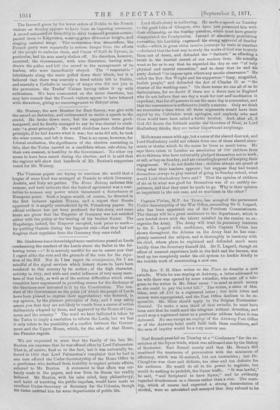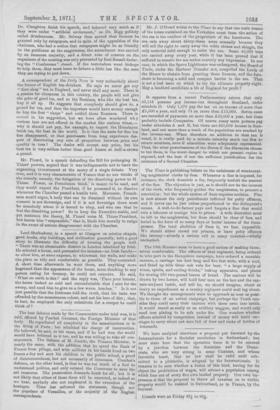Earl Russell presided on Tuesday at a "Conference "for the
re- striction of the liquor trade, which was addressed also by the Bishop of Rochester. Earl Russell merely said that Mr. Bruce's Bill combined the maximum of provocation with the minimum of efficiency, which was ill-natured, but not instructive ; but Dr. Claughton was clear and definite, too clear and too definite for his audience. He would do all in his power to regislate, but would do nothing to prohibit, the liquor traffic. "It was lawful," he said, "and Scriptural to have liquor," and he evidently regarded drunkenness as a disease rather than a vice. The meet- ing, which of course had expected a strong denunciation of alcohol, were so astonished and annoyed that they refused to let Dr, Claughton finish his speech, and behaved very much as if they were under "artificial excitement," as Dr. Rigg politely called drunkenness. Mr. Selway then moved that licences be granted only by ratepayers, and in spite of the opposition of the -chairman, who had a notion that ratepayers might be as friendly to the publicans as the magistrates, the amendment was carried by an immense majority, and a direct vote of censure on the organizers of the meeting was only prevented by Earl Russell declar- ing the " Conference " closed. If the teetotallers want bishops to help them, they must learn to behave a little less like the men they are trying to put down.































 Previous page
Previous page